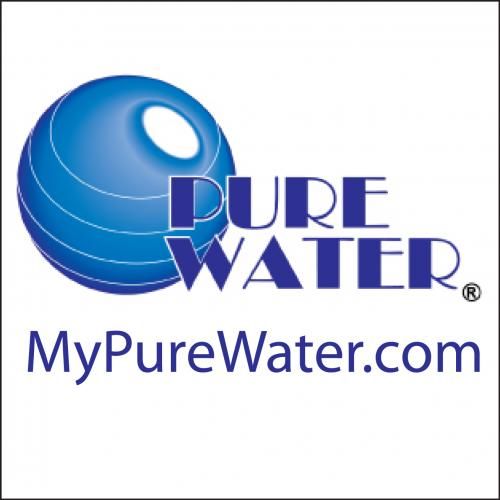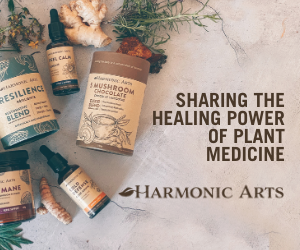What’s the Deal With Cheese? Healthy or Not?
Mar 15, 2011
Hello all my fellow health “gurus”. I hope everyone is feeling fantastic and full of vitality! First, let me just say that this blog was inspired by a special friend (you know who you are!) with a “cheesy” question.
It’s all about cheese, cheese and more CHEESE. But WAIT! BEFORE you peace out…please hear me out! It’s for VEGANS too…as well as for all of you who just plain hate cheese. If that’s possible! Yes, I know there are a few of you out there who don’t like cheese.
For all you cheese lovers like me, or those who don’t have raw, natural cheese available to them, you might like this! I know there is no true replacement for REAL dairy cheese, but I think I’ve got something for you that measures’ up quite well. It’s a fantastic ooey gooey vegan cheese sauce that’s delicious over whole grain pasta, thin crust pizza, veggie lasagna, nachos, quesadillas, stuffed peppers, etc. etc. I think you know what I mean! Mmmm I’m hungry now! Actually, once you get to know me well, you will notice that I’m ALWAYS hungry simply because ILOVE food. My partner says he’d definitely “rather dress me than FEED me!” And I’m sure my poor parents used to feel the same way…
For the vegans and cheese “haters” I’ve created a vegan cheese sauce for you. I love my vegan cheese sauce so much that I have two different variations of the recipe! Follow the link below to try them out.
Although I love following a vegan diet and lifestyle…
I’ve been a vegetarian for years, but have switched back and forth from being a vegetarian to a vegan, and back again to a vegetarian. I love my cheese and eggs, but especially CHEESE! I don’t consume much dairy; no milk at all, I may have a natural yogurt once in a blue moon. The cheese is my “weakness”. Cheese is partially the reason I kept switching back and forth from veganism to vegetarianism.
FYI
Vegan = NO animals & NO animal products
Vegetarian = NO animals
You love cheese too! Aw ok, now that’s comforting. So your next question might be what the healthiest cheese is. Well, I like to have some quality cottage cheese as well as cheddar or mozzarella once in a while. Stay away from those pre-packaged processed cheeses! And no matter which cheese you have, the most important thing is that it is REAL cheese. Cheese that is organic and as traditional and natural as possible; the kind of cheese people have been eating for thousands of years.
When you walk into your local grocery store, you’ve probably noticed that the large majority of plastic packages on the cheese aisle do not come close to resembling traditional cheeses anymore. Where to start? How do you know which cheese is the most nourishing?
Besides its incredible consistency and taste, what’s the difference between that expensive, imported traditional cheese and the discount block of processed Kraft cheese (a.k.a plastic with chemicals and preservatives) anyway? A LOT. Because cheese is made from milk, many of the principles you’d apply to choosing the healthiest milk can also be used to pick the healthiest cheeses.
Things to look for when choosing the best and most nourishing cheese include the following:
- real, traditional, natural
- raw, unpasteurized
- organic (commercial cows are pumped with synthetic hormones and antibiotics)
- made with free-range cows milk
- from grass-fed cows milk which is higher in omega-3 (cows are fattened and force-fed corn, soybean and other feed high in omega-6 that people consume too much of = illnesses)
Raw goat’s milk, sheep’s milk, and yak’s milk make cheese that is more easily digested than cow’s milk. It can be quite difficult to find RAW milk or cheese these days; but if you look well, you will find it.
The FDA thought it would be an advantage to put restrictions on our consumption of REAL, natural cheese/milk because “it may” be damaging to our health! Do you know how many people have been killed by eating raw cheese? NONE. ZERO. ZIP.Nobody really knows why the FDA has decided to crack down on the importing of aged cheeses made from raw milk. Perhaps because it benefits our health?!
The next time you’re at the grocery store, make a point to look at the ingredients on a package of a typical pasteurized, processed, name brand cheese. You’ll see that it doesn’t just say fermented cow’s milk on it. It may include a LONG list of complicated chemical names you can’t pronounce though!
REAL, natural cheese is a very good source of protein and calcium. It is also a good source of phosphorus, iodine and selenium. However, all dairy products are acidifying in our body. The amount of calcium we actually absorb from cheese is questionable. So make sure you’re still having plenty of leafy greens, nuts and seeds as well as fermented soy products…just in case! And cheese does contain saturated fat. Too much of anything is never good.
Another problem with consuming cheese made from cow’s milk is that many of us are lactose intolerant. The sugar contained in cow's milk is called lactose. The enzyme needed to digest this special sugar is called lactase. After infanthood, many of us don’t have enough lactase enzyme to keep up with our large intake of dairy products containing lactose. Then comes the bloating, gas, constipation, acne, swollen tonsils (dairy products are mucus forming), infection, etc. A cup of cow’s milk will contain approximately 10-12 grams of lactose. When it comes to cheese…the bacteria used to produce it and the time required for it to ferment, both work to lower lactose levels. Therefore cheese typically has less lactose than milk, which makes it easier to digest and tolerate for some people. The harder the cheese, the less lactose it contains. Soft cheeses typically have more lactose.
Well I hope you’re all “cheesed” out for the day! Now think twice before buying your next brick of cheese. REAL, NATURAL and ORGANIC is always the better choice.
For you information, a few words about cheese from Dr. Joseph Mercola himself…
“In terms of nutrition, the difference between organic grass-fed cheese and the cheese from grain-fed cows you find in most stores and restaurants is as opposite as two different forms of the same food gets. I strongly urge you to avoid grain-fed cheese.
Though cows are naturally grass-feeding animals, 85-95% of dairy cows are raised in confinement on a diet of grain, particularly corn, because it is far more cost-efficient for agribusiness. Because this grain-based diet is highly abnormal and disruptive, it changes the ph in cows. This then sets up an environment and terrain in the cow for many abnormal physiological conditions in the cow which can increase the need for the use antibiotics. Further, to promote faster growth and more excessive milk production, many of these dairy cows are fed a variety growth hormones. All of this makes for the severely unhealthy dairy products that you'll find on virtually all grocery store shelves.
This grass-fed cheese, on the other hand, is:
- One of the few foods that contains a perfect balance of omega-3 and omega-6 fats, a ratio ideal for your health
- Very high in "conjugated linoleic acid;" in fact, it contains five times more CLA than dairy from grain-fed cows! CLA, which are most abundant in grass-fed products, are among the most potent cancer fighters in all foods.
- Considerably higher in beta-carotene, vitamin A, vitamin D, and vitamin E than cheese and other dairy from grain-fed sources.
- High in the healthy calcium and protein your body needs
- Made from Certified 100% organic milk
- Free of all antibiotics and growth hormones”
Looking to source quality foods, supplements, and nontoxic home products? This vetted list put together by Beyond Vitality can help!
JOIN THE COMMUNITY
I would love the chance to support you further and connect with you on a deeper and more personal level.
I’ll share new offerings, recipes, updated health solutions, and behind-the-scenes snippets…
We hate SPAM. We will never sell your information, for any reason.









